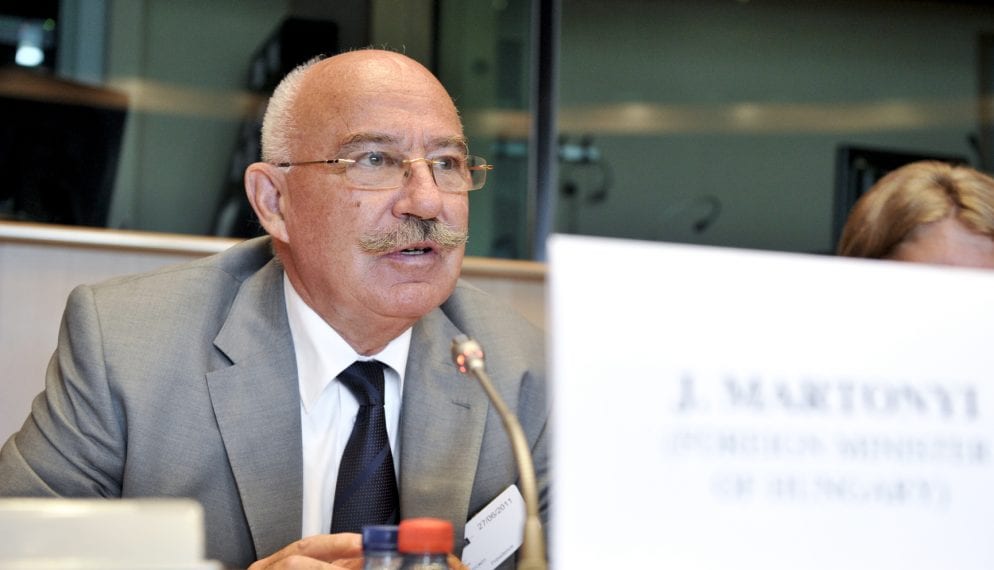
Former Foreign Minister János Martonyi took part in an expert hearing of the European Parliament’s Committee on Constitutional Affairs
2020. 10. 07.
In an expert hearing, the Committee on Constitutional Affairs (AFCO) heard former Foreign Minister János Martonyi, Professor of International Private Law. The purpose of the hearing was to assess the need to reform European elections.
In his speech, János Martonyi emphasized that the most important common element in the Spitzenkandidat system and the transnational list is that neither could be imagined without a treaty change, as the Council has no obligation to follow the EP proposal, and in the case of the transnational list, the need for amendment is obvious. He also pointed out that the transnational list would not bring the Union closer to the citizens, as European parties would nominate MEPs, and this distance would in fact reduce democratic legitimacy. There is not even a federal state where a federal list would be applied. He noted regarding the impact of the introduction of the Spitzenkandidat system that it would result in one political party covering, at most, only 20-30% of the Union’s population. The former minister concluded his speech that it would not be fair and democratic to ignore the Member States and 70-80% of the electorate. Today’s institutional situation is the result of decades of development, so it would only be worthwhile to change the EU institutional system if it were preceded by a real, in-depth, thorough analysis. Such a change in the institutional balance could have unforeseeable consequences.
Regarding the transnational list, Fidesz MEP László Trócsányi emphasized that “the European Union is not a state, but it was created by the will of the Member States, the Member States being the lords of the treaties. (…) In Europe, people come from different regions and countries, have different traditions and, accordingly, Christian democratic, social-democratic, liberal and other ideologies are not homogeneous, but each bears its own national color. Members of the European Parliament represent national political parties.”
Background: The European Parliament, the European Commission and the Council of the European Union agreed in June 2020 that they would launch a series of conferences in 2020 named Conference on the Future of Europe as part of the debate on the future of the European Union. The aim of the Conference is to assess situation in the Union and envisage possible reforms. On the sidelines of the Conference, the European Parliament’s Committee on Constitutional Affairs invited experts to discuss the need for reform of European electoral law and discuss again the various contexts of the previously discarded, closed transnational list and Spitzenkandidat system.